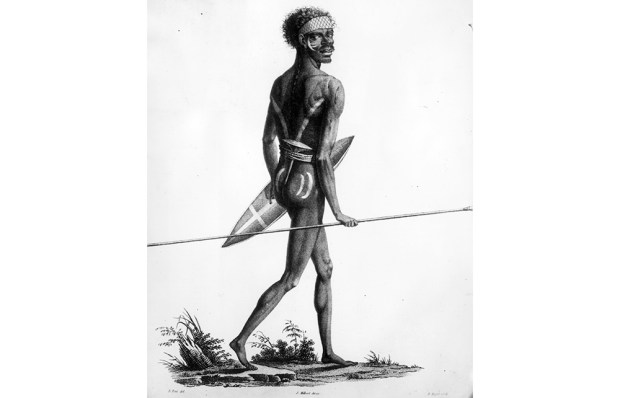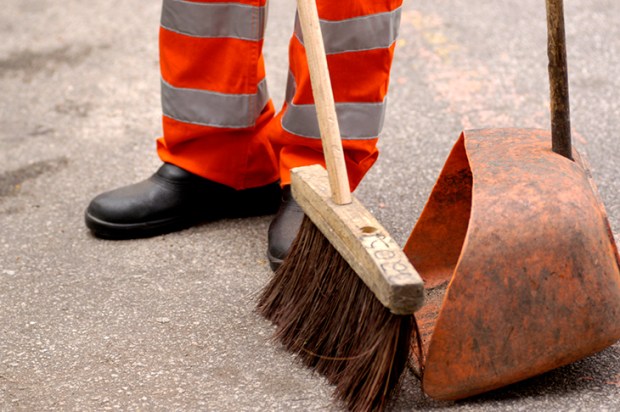As the terrible events in Bondi Junction last month reminded us, fortune doesn’t always favour the brave. Indeed, the courage of the those who tried to contain that carnage is all the more remarkable because they would have known, as anyone who watches the news knows, that for every Damien ‘Bollard Man’ Guerot in such situations there are likely to be more than one Faraz Tahir, the security guard who died. I like to think that I might have done the same as the young Frenchman when he saw the knife-wielding Cauchi coming up that escalator (an Australian Columbine moment, for those who remember the US high school CCTV footage). But unless my own safety or that of a member of my immediate family had been threatened, I very much doubt my first impulse would have been to pick up the nearest bollard. I think it far more likely that I would have joined the stampede for the exits. Because I know that at such moments my faith in social constructs like the greater good would not override the survivalist instincts hard-wired into me; those preservation protocols which evolved in response to the myriad existential threats which made human life so nasty, brutish and short for all but the last few centuries. And nowhere more than in Australia. Rousseauian fantasies of Bruce Pascoe and his anti-colonialist ilk notwithstanding, the research of real historians and anthropologists has confirmed what British settlers inferred from their first encounters with the indigenous population; that up to that point, life for most of them had been a Hobbesian case study. That on a landmass as subject to drought as Australia, the hard-scrabble deprivation which is a corollary of nomadic subsistence would have continued to limit population growth without any help from smallpox. And that First Nations people had been spearing and clubbing each other to death with horrifying efficiency for a long time before any of them heard a musket shot. In a culture where violence or the threat of it had been used to settle differences for millennia, expecting people to walk away from it in a few generations was always going to be a big ask. And we should hardly be surprised that that DNA default to physical conflict resolution has been hardest to expunge in the remote indigenous communities where, with laudable intentions, white Australia has been most unwilling to impose its values. For quite a long time, white Australians who lived outside towns also encountered threats to life and limb on a daily basis. Just the decision to move to an environment where, as well as hostile natives and the occasional homicidal bushranger, you knew you would be sure to encounter snakes and spiders which could kill you, was a decision which required a fair amount of courage. Australia’s urban population, on the other hand, had to wait for wars to test its mettle, or rather the mettle of its manhood. And in places like Gallipoli, Tobruk, Kokoda and Long Tan it was not found wanting. But I am lucky enough to belong to a generation of Australian men who, touch wood, will never know how we would respond to being shot at or charged at with bayonets, or seeing our best friends blown to smithereens in front of us. The closest most of us will get to courage is in the way we react when we are told that we have a terminal illness. And while we talk of people fighting such illnesses bravely, we know that it is a Gandhian kind of courage which looks more like stoic resignation than heroism. It is certainly nothing like the proactive courage required to ramp up a lethal threat by engaging with it when you have the option of escape. It is the cruellest of ironies that this is a point which was made very publicly just two weeks before the Bondi attack by one of the people who were most directly and tragically affected by it. ‘An apology to Ben Roberts-Smith, from a coward’ was the headline of the full-page advertisement placed in our leading national broadsheet by John Singleton. Mr Singleton could not have had such a successful advertising career if he hadn’t always had a finger pretty firmly on the national pulse. But in acknowledging the courage of the men and women who put their lives on the line each day to protect our way of life, he was doing more than talking to the majority of ordinary Australians; he was also speaking pretty eloquently on their behalf.
Got something to add? Join the discussion and comment below.
You might disagree with half of it, but you’ll enjoy reading all of it. Try your first month for free, then just $2 a week for the remainder of your first year.














